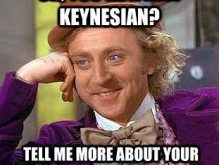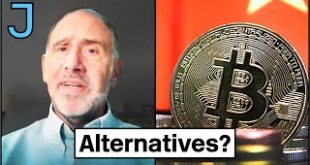from Peter Radford My summer of research is almost over. The season here in Vermont is changing and the view from our window will soon be dominated by the brilliant autumnal colors our region is famous for. All is both regular and well. Sort of. Perhaps there’s something in the water down there in New York. There are rumblings of life in economics. The long sclerosis inhibiting the emergence of theories that explain rather than re-invent reality might just be close to loosening its...
Read More »Weekend read – How dominant are big US corporations?
from Blair Fix I recently had a lively Twitter debate with Jonathan Nitzan, Shimshon Bichler and Cory Doctorow1 about the future of big corporations in the United States. The debate was prompted by Doctorow’s piece ‘End of the line for Reaganomics’, which I reposted on capitalaspower.com. Doctorow argues that we may be witnessing a sea change in the way governments treat big corporations. Since the Reagan era, the US government has taken most of the teeth out of antitrust enforcement. The...
Read More »Big Pharma fights back
from Dean Baker The Democrats have proposed paying for part of President Biden’s Build Back Better plan with $500 billion in savings on what the government will pay prescription drug companies through Medicare and other public programs over the next decade. The country currently pays the pharmaceutical industry over $500 billion annually for its products. If we look at spending over the next decade, and like the news media, ignore that it’s over ten years, we would say that we will give...
Read More »Reinstating the gold standard
from Lars Syll Ninety years ago Keynes could congratulate Great Britain on finally having got rid of the biggest ”barbarous relic” of his time — the gold standard. He lamented that advocates of the ancient standard do not observe how remote it now is from the spirit and the requirement of the age … [T]he long age of Commodity Money has at last passed away before the age of Representative Money. Gold has ceased to be a coin, a hoard, a tangible claim to wealth … It has become a much more...
Read More »Economists assumed that the economic process happens in an abstract, no-space and no-time historical void.
from Andri Stahel and RWER current issue What does modern economics have in common with medieval theology? At a first glimpse, very little. After all, economics presents itself as a science, based on the same mathematical principles and ideals of objectivity and empiricism on which mechanical physics is grounded and which, as is known, replaced medieval theological description of reality. Moreover, they apply to different subjects: heavenly, spiritual matters for theology, earthly...
Read More »Paul Krugman, going green in China, and the which way is up problem in economics
from Dean Baker Paul Krugman’s column this morning raises the issue of whether China is on the edge of seeing a real estate bubble burst, in the same way that Japan saw its real estate and stock bubble burst in 1990. Krugman points out that this did lead to slower growth for Japan, but it was not an economic catastrophe, as it still saw rises in GDP, relative to its working age population, that were comparable to the U.S. (I would add that one reason why Japan did not see more GDP growth...
Read More »‘New Keynesian’ macroeconomics — worse than useless
from Lars Syll Macroeconomic models may be an informative tool for research. But if practitioners of ‘New Keynesian’ macroeconomics do not investigate and make an effort of providing a justification for the credibility of the assumptions on which they erect their building, it will not fulfill its tasks. There is a gap between its aspirations and its accomplishments, and without more supportive evidence to substantiate its claims, critics will continue to consider its ultimate argument as...
Read More »We Need Alternatives to Cryptocurrency — Dean Baker
Economist Dean Baker discusses China's new ban on cryptocurrency transactions and looks at the pharmaceutical industry’s ironclad grip on American politics. Subscribe to the channel and hit the like button! Subscribe to Jacobin for just $10: https://jacobinmag.com/subscribe/?code=JACOBINYT Music provided by Zonkey: https://linktr.ee/zonkey Full livestream (members): https://youtu.be/j9BiOlFCMCQ
Read More »Will Workers Have More Power After the Pandemic? — Dean Baker
Economist Dean Baker looks at whether the ongoing labor shortage signals a positive shift for workers, and discusses the national debt and the fight over the reconciliation bill. Subscribe to the channel and hit the like button! Subscribe to Jacobin for just $10: https://jacobinmag.com/subscribe/?code=JACOBINYT Music provided by Zonkey: https://linktr.ee/zonkey
Read More »Time is running out for a new agricultural model for the global south
from Jayati Ghosh Climate change is posing immediate threats to humanity, and indeed to all living organisms on the planet, in extreme weather events across the globe. Other environmental stresses include rising water levels or falling water tables, desertification and salination. Agriculture—especially industrial agriculture requiring chemical inputs—is cause and victim of these changes. Cultivation patterns such as mono-cropping, with heavy reliance on groundwater and chemical inputs,...
Read More » Real-World Economics Review
Real-World Economics Review





